Steep Hillside - English Ivy?
Our "front yard" is a very steep hill, that we currently have mulched every two years. I don't love the look or the cost of this upkeep. I am thinking of planting english ivy and letting it take over the whole area. I like that it would green up our "yard" and I've read that it will also aid in choking out the weeds that grow on the hill. Is this a terrible idea? (We live in New England)
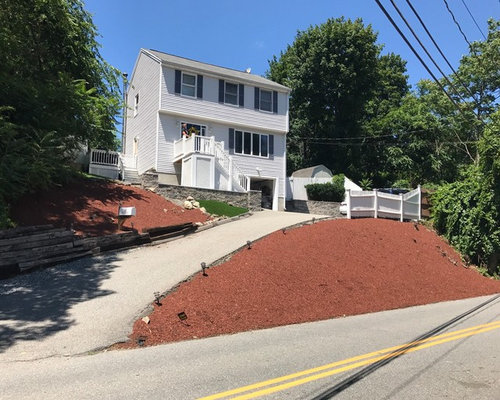
Comments (40)
Yardvaark
4 years agolast modified: 4 years agoEnglish ivy can take a pretty good amount of sun but does not prefer full sun, all day long. It looks like it would be very happy at the left side of the drive. Does the main slope get any shade at some parts of the day? If it does, English ivy would be content.
The concept of groundcovers "choking out" weeds I think is erroneous in all cases. I don't know of any groundcovers that would actually do this. It's more likely that weeds would choke out groundcovers. However, once groundcovers become solid, they work greatly to suppress growth of new weeds, making mild, occasional hand-weeding easily doable. However, it looks like your previous maintenance has already choked out weeds, so you should not find it too difficult to deal with them while ivy is establishing.
If English ivy grows well in your area, and can accept the light conditions, it would be an excellent solution for the slope. You would need to trim its edges and decide how you want to deal with it where it meets the woods. You might want to check out a thread where I've written a fair amount about it. Search the Groundcovers forum for: Managing Hedera Helix and look for the thread by that name.
One thing I like about English ivy is how easy it is to root. If it is common in your area, it's usually not difficult to find some that needs to be trimmed (where it is growing over walk or drive). I's likely that anyone would let you cut off the excess and take it for your own use. After rooting and planting, the key to get it growing fast, in addition to an initial fertilizing, is regular watering.
gardengal48 (PNW Z8/9)
4 years agoThe concept is good....the plant choice is not :-) English ivy - Hedera helix - is considered an invasive species in a number of states, including several in New England. And it is well known to be a desirable habitat for rodents in any urban or heavily populated suburban areas. It is also not all that great at weed suppression unless you have a very thick layer (8-10 inches or more).
But there are other evergreen groundcovers that could work.....Cotoneaster dammeri, Arctostaphylos uva-ursi (bearberry or kinnikinnick), groundcover or carpet junipers.......... But none will be 100% effective at weed control. Helpful, yes :-) if you were in my zone, I'd suggest creeping raspberry, Rubus calycinoides (syn. R. hayata-koidzumii). One of the best weed suppressing groundcovers I know of and great for slopes and also extremely attractive. But needs a zone 7 or above.
Related Discussions
English Ivy
Q
Comments (4)Question is, is there anything vertical on that slope for the ivy to climb?? Tree trunks? Ivy runs then climbs. Think of all the ivy covered walls, buildings and tree trunks. Gravity doesn't dictate where ivy will run (unlike vinca major/minor). If the slope isn't too steep I'd say plant at bottom and mid bottom and stake it to grow in the direction you want....See MoreSunny hillside ivy alternative?
Q
Comments (1)We have Algerian ivy on our bank in full sun that would go after small children and animals. And being in the woods, it brings rats that like to condo complex it. Smaller leaved Ivy plants are slower to get going but I have the small leaved glacier ivy on the chain link fence between us and the neighbor. They have fo-ti which is smothering and I have to pull it down. On my terraced slopes in back I have fragaria, stachys, cerastium, and dymondia. The fragaria takes off really well if watered....See MoreEradication of English Ivy
Q
Comments (19)I have a byard with over ten years of overgrowth, no maintenance, basically a jungle that is the top bank of a riparian cooridor. The ivy that was planted twenty years ago at our townhouse complex has broken loose and infested the entire byard, and creeping into the riparian area. I can't control my neighbors area, so I have taken control of my area personally by weeding out the ivy manually by hand. Then I got some wood chips for free from local tree company and spread about 3inches thick across the cleared area. I am planning to leave as-is for a while to see if the ivy cannot grow back up thru the wooodchips. We'll see what happens....See MoreEnglish Ivy as a groundcover?
Q
Comments (3)Check web site of Washington Noxious Web Control Board (or whatever the exact wording is) for additional information. Only certain kinds of ivy have been listed, don't remember at what level of listing (there are several)....See MoreYardvaark
4 years agoWhen I saw "2 comments" on this thread, I knew the other one had to be Gardengal's. I have to disagree. Look around where you live and if you see English ivy, assess if it's growing well and looking good. It is far easier to maintain than any groundcover that develops woody stems, such as cotoneaster or juniper. And it is every bit as effective as they are when it comes to weed suppression.
That a plant is listed on a so-called "invasives" list, is no different than any modern political argument and there are just as many, if not more valid reasons to oppose it, as there are to agree with it. I hear many false claims made about ivy (its being a "rat haven," for example) and have such an extensive, long term experience with it, that I believe firmly that the naysayers are wrong ... in spite of them being possibly politically more powerful ... because that's the way fads in politics work. History is rife with examples of political wrongness. We don't hear anything about Global Cooling or Acid Rain any more, but these were once the so-called top level destroyers of the planet earth and our way of life.
Olychick
4 years agoWatching English Ivy choke our forests, I can't imagine suggesting anyone plant it. There is plenty of info online to suggest it is not a good choice in many parts of the country because it IS invasive. Just google how to get rid of it and you'll learn what a pest it is:
https://www.hortmag.com/weekly-tips/pests-diseases/how-to-get-rid-of-english-ivy-in-the-landscape
https://wtop.com/garden-plot/2019/03/get-to-root-of-problem-how-to-eradicate-english-ivy/
https://www.bobvila.com/articles/how-to-kill-ivy/mad_gallica (z5 Eastern NY)
4 years agoAnd I was going to ask specifically where in New England the OP is because my neighbor's English ivy takes a serious hit from winter about every other year. It isn't a zone 5 plant.
Yardvaark
4 years agoSeriously Gardengal ... you really think that a hater is going to spend time learning the strategies of successfully managing a plant ... when all they can talk about is how much they hate it, how difficult it is in every aspect, how many bad habits it has, how impossible it is to get along with ... how evil it is, blah, blah blah...? We could never have a rational discussion about it because your mind is one-sided and completely closed on the issue. One can't have a rational discussions with that type mindset. You want to inflict your opinion on others because, in your mind, it's superior. You can say every bad thing you want to about ivy, but it only confirms in my mind how there is a significant body of knowledge that you're ignorant of, and closed off to, in spite of your claiming to be the last word on all things horticultural. That's fine. Not trying to change you. Or dialogue with you about it. But you can't seem to allow others to have differing opinions without going into ad hominem attacks. Ocasio-Cortez thinks the world is ending in 12 years and the Green New Deal must be imposed now. Do we all have to agree with her because it's a doomsday prediction and she's shrieking?This is no different. In spite of your feeling like you must police all talk of ivy, it does serve a useful purpose and there are many people who disagree with you about it.
kentc
4 years agolast modified: 4 years agoOlychick, your hortmag link is completely worthless. First, they show a photo of Boston ivy on a wall and call it English ivy. If they cant even identify it correctly why should I see them as authoritative? Second, they call it a fire hazard, english ivy is many things but a fire hazard it’s not. Third, they say to wear protective clothes since English ivy can irritate skin, what nonsense. Fourth, it says absolutely nothing about invasiveness.
Your Bob Vila link repeats the skin irritation nonsense and calls it invasive simply because it grows fast. Anyone who has ever actually grown english ivy knows that it’s quite easy to control if you’re conscientious, but if you ignore it it can get out of control.
Your Wtop link goes on and on about it before admitting that ivy roots are quite shallow and easy to dig up, which is true.
Invasiveness is a pretty vague concept that is tossed around on Gardenweb quite a bit without any qualification by too many people. I can think of many plants that are truly invasive and almost impossible to control or eradicate once they are in your yard but english ivy isn’t one of them. But yes, it can get out of control and if you’re not willing to get out in your yard regularly and maintain it then don‘t plant it. But if you know how to control it and take the time to control it english ivy can be a perfectly acceptable choice for some gardens in some areas of the country.
Nancy R z5 Chicagoland
4 years agoI have English ivy growing on the ground on the north side of my house, between my house and my neighbor's driveway. Here in zone 5, it does fine, although I think that is its limit. In 20 years, I only had one winter in which some of it turned blackish, I guess from the bitter cold. Last winter's polar vortex didn't seem to affect it, oddly enough.
Yardvaark
4 years agoThank you, Kentc! Well said.
Odd ... the forests that are supposedly being choked are also continuing on in perpetuity without trees dying, because English ivy is NOT a tree killer.
Revolutionary Gardens
4 years agoThere are way more attractive and interesting choices than English ivy. It's the first thing you see on approach to the house, you have a gazillion options because it's in full sun, it doesn't need to be a ratty carpet of boring. I totally don't get everyone on Team Ivy, there are a lot of plants that bring way more to the table.
emmarene9
4 years agoFor a large area like you have a prefer ground cover plants of differing heights. I like short plants near walk ways and taller in back.

In the beginning it will be more care than you currently have for the mulch.
I can't recommend plants but I like prostrate shrubs along with perennials used as ground cover.
I don't object to ivy but it is not low maintenance. It will require trimming to keep it off the path and shearing to keep it from flowering.
kentc
4 years agolast modified: 4 years agoRev Gardens, it's not that I'm super pro ivy, but I have to push back against online ivy hysteria that treats it like a gardening apocalypse. Ivy can be a solution, one solution, and yes a boring solution. There are some places, meaning both climates and gardens, where it can solve problems and provide a green carpet that is tough and resilient. Ivy can also be a problem and there are many areas and situations where it should be avoided. I'm just hoping for a more nuanced and realistic discussion about ivy instead of 'The sky is falling! The sky is falling!'
And your 'ratty' comment brings up another of my gripes if you meant by 'ratty' that it attracts rodents. Is there any evidence that ivy itself attracts rodents or will any ground cover with a dense, layered growth that provides protection and shelter attract rodents equally? I would guess it's the latter but if anyone out there has real evidence that ivy is a unique attractor of rodents I'm willing to learn.
gardengal48 (PNW Z8/9)
4 years agolast modified: 4 years ago"Third, they say to wear protective clothes since English ivy can irritate skin, what nonsense. "
" link repeats the skin irritation nonsense "
It is NOT nonsense at all!! A great many plants can cause contact dermatitis and both English ivy and Algerian ivy are known sources of this issue. Not everyone will react in the same manner or even at all but the issue does exist. There are medical reports dating back to the late 19th century documenting this and you will find multiple references to it in online medical journals and scientific publications, if you only bother to look. What IS nonsense is people making specious claims like the above who obviously have no firsthand knowledge but yet persist in speaking like they are some kind of ivy expert!! Nonsense indeed!!!
I didn't come here to debate the political motivation behind listed plant invasiveness or any other plant-related conspiracy theories. The problem exists, whether you want to acknowledge it or not, and is easily observed if one bothers to look. No one said that ivy kills trees but there is clear evidence of it invading forests and native green spaces all along parts of the west coast and effectively smothering out a lot of lower growing native vegetation. I have not personally witnessed this in the midAtlantic or southeast but there is sufficient documentation to conclude similar situations exist there as well.
Planting a documented invasive species and then assuming it will be maintained properly in perpetuity is a joke!! We see posts daily here from homeowners who have inherited overgrown or neglected gardens or those who have allowed their own to go feral and countless requests for "low maintenance" plantings to know that properly tending to an intentionally planted invasive species is not gonna happen with any degree of consistency to insure that it does not spread out of bounds. Heck, most don't even realize that ivy flowers and sets copious quantities of berry-like seeds that birds consume and then spread to far off locations. The point is control is not really an option in most cases due to lack of knowledge - as is in blatantly clear evidence here with this post - or because of lack of time, lack of interest or lack of funds to hire it done on a regular basis.
Honestly, I find several of the responses here to be head shackingly ignorant! Gardeners are supposed to be stewards of the earth and one would hope that practicing landscape designers and horticulturists would be available to guide homeowners and other inexperienced gardeners in the right direction. Apparently not. And that makes me also question as to whether any of the other advice given is of equally dubious merit as well.
kentc
4 years agolast modified: 4 years agogardengal, I appreciate the knowledge and experience you bring to this forum, I listen to you and enjoy your comments. But calling ivy a skin irritant is nonsense. I have had ivy, english and algerian, growing in gardens and yards here in southern CA all of my life. I'm 65 and have been gardening for almost all of those years. I've trimmed and dug out and disposed of tons of ivy for decades, both in my yard and in other yards. I've worked with dozens of people doing the same. Dozens of other acquaintances with hands more delicate than mine have decorated many garden receptions and parties with garlands made of ivy and created centerpieces with cuttings of ivy. No one has ever had any kind of skin issues with ivy. In this I AM a voice of experience. If you want to say that ANY plant may be a potential skin irritant for SOME people I'm OK with that. But to call out ivy as a unique skin irritant is nonsense and just another example of the ivy hysteria that seems to exist online.
gardengal48 (PNW Z8/9)
4 years agoHere are just a few of the online publications addressing this issue:
- https://jamanetwork.com/journals/jamadermatology/article-abstract/524752
- https://www.walterreeves.com/landscaping/english-ivy-dermatitis/
- https://onlinelibrary.wiley.com/doi/abs/10.1111/j.1600-0536.2009.01677.x
- https://www.semanticscholar.org/paper/Allergic-contact-dermatitis-to-English-ivy-(Hedera-Jones-White/a661b3f314a38bdfbf2972f67a7789b26658795b
- https://www.researchgate.net/publication/42254218_Dermatitis_from_common_ivy_Hedera_helix_L_subsp_helix_in_Europe_Past_present_and_future
- https://healthyliving.azcentral.com/treatment-and-symptoms-of-english-ivy-rash-12316341.html
But there are many, many more. Different people have different sensitivites and you are lucky that it does not bother you (doesn't bother me either but then few plants that are know to have this effect do. OTOH, my daughter is extremely reactive and has the scars to prove it!)). But to dismiss the effect as "nonsense" just because it doesn't bother you is an extremely shortsighted and narrow viewpoint!!Re: the rat issue. Rats can be attracted by any thick, dense undergrowth. But few other groundcovers form 12-18" thick, dense, almost impenetrable evergreen growth as does ivy. And over such wide expanses. Clearing out established patches of this weed, it is easy to see the tunnels rats have made for access through the stuff and to find nests. I have personally witnessed rats scurrying for cover when established patches are addressed for removal with a front loader. It is a common enough situation that various agencies report on it and pest control companies are called in to address.
'Hysteria' is a pretty strong word to use in this situation and one I believe to be unfounded based on my career as a landscaping and horticultural professional dealing with English ivy over many years. Aside from its extreme invasiveness in particular parts of the country and cautionary invasiveness in others, there are any number of other very sound reasons to avoid. In the NE, it would be ticks......as well as rats. And probably rabbits, voles and other plant damaging mammals.
Heather Gill
Original Author4 years agoThanks all for your advice! Wasn't expecting to get such varied responses! May look into the Cotoneaster dammeri gardengal suggested. Is this fast growing? We are in zone 5b and the area is full sun all day. How many plants and how far apart should they be planted?
kentc
4 years agolast modified: 4 years ago" What IS nonsense is people making specious claims like the above who obviously have no firsthand knowledge but yet persist in speaking like they are some kind of ivy expert!! Nonsense indeed!!!"
You can't demand experience and then dismiss it. Do you know anyone who has ever had any kind of reaction to ivy? I have no doubt that ivy may contain compounds that can be irritants but that is beside the point. In practical experience does anyone have skin irritation from ivy? In 50+ years of dealing with it I can categorically state that no one has. To clump ivy into the same category as truly skin irritating plants is nonsense.
"'Hysteria' is a pretty strong word to use in this situation"
So is insinuating that someone who would plant ivy is not a good 'steward of the earth.'
I can only repeat what I said to rev gardens (another voice of experience that I truly value on this forum.) In some areas of the country, in some gardens, in some situations ivy can be an acceptable choice, although a boring one. In other areas of the country it is not acceptable. People should be informed so they can make that choice. Ivy is not radioactive waste, it isn't going to create a superfund cleanup site or bring on the destruction of the earth. Some balance is needed when it comes to this subject, but as your impassioned rhetoric demonstrates, that balance is hard to find.
Please keep up the good work here, Gardenweb forums would be a poorer place without your knowledge and sharing.
Revolutionary Gardens
4 years ago@kentc I've never heard "ratty" used as a synonym for rat-infested, but I have heard it used to describe something tattered, worn-out, tired looking, etc. As in my wife telling me "Dave you've had that ratty-*** shirt for 20 years, isn't it time you threw it out?" At least here in my area, most large beds devoted to ivy are every bit as ratty as my beloved OzzFest '98 t-shirt. Most of the work we do is complete landscape renovation of established homes. I can count on zero hands the number of clients who have wanted us to keep their swaths of ivy because oh, they love them so. There are just better solutions.
kentc
4 years agolast modified: 4 years agoRev Gardens, I agree with everything you said, which is why I'm really not a cheerleader for ivy, I'm just hoping for a better discussion about it. But English Ivy, especially the needlepoint varieties, has attractive foliage, and some of the variegated varieties have a very nice warm cream color that goes really well with used brick. I've seen it used successfully here in CA in a small bed completely bounded by hardscape underneath shade from a small tree. Ivy there can cover completely, lend nice texture, and easily take foot traffic that cuts the corners. Trim it once a month, give it a haircut once a year in early spring and forget it.
Algerian ivy is just a thug and is plain ugly. Yet here in CA people still plant it because they want something green and tough that will cover the ground. It certainly does that although given its many drawbacks it's not a good solution.
Yardvaark
4 years ago"... [ivy] form 12-18" thick, dense, almost impenetrable evergreen growth."
That is really so off the mark! It's another demonstration of the false, hysterical claims that give just cause to summarily dismissing all the ivy-badmouthing that haters carelessly spew. As a groundcover it's about 8" height ... lower than pachysandra. It would only appear to be the claimed heights if it's climbing over debris or such. No one should believe these claims without seeing actual evidence.
As far as it being an actually DANGEROUS skin irritant ... since I've been where tons of ivy is, and where tons of people are, for a long time -- and I've never heard of it happening to a single person -- I have to reason that, if it happens to anyone, it is rare in the extreme. Compared to something like poison ivy, which affects nearly EVERYONE, these plants would be light years apart in how they affect people. The world cannot operate depriving everyone of something useful because there are 3 people out of 300-million who are negatively affected by it. I'm not saying there's not somebody or some people who shouldn't come in contact with it, but it couldn't possibly be any reasonable number to justify its removal for everyone else. It's not a valid argument and shouldn't even be mentioned. If my saying so causes more hysteria, then we probably have a new medical condition called "Ivy Derangement Syndrome." As I think about it, I'm pretty sure this literally exists.
gardengal48 (PNW Z8/9)
4 years agoDid you bother to read any of the links I attached that addressed contact dermatitis and ivy?? Obviously there is practical experience involved or those reports would not have been generated!! Medical journals do not just make these things up without supporting evidence. Just because you have not experienced it or anyone you may know does not mean it does not exist. And you can call it nonsense all you want but it does not negate the fact that it is a very real thing and that many have experienced it. That is just as hysterical (and pigheaded) a response as my stating that planting a known and well documented invasive species is irresponsible and should not be promoted by anyone involved in gardening/landscaping on a professional level.
btw, I did suggest the OP do her own research as to what would be appropriate in her location and to make her own decisions about using ivy. It is not problematic regarding invasiveness everywhere, altough the many other drawbacks to using it do exist regardless. My comments or '"impassioned rhetoric" as you put it were directed to those who a) dismiss the issue of invasive species as politically motivated (that is truly nonsense); b) deny that there are any issues involved in planting English ivy where it is a problematic species; and c) and maintain it is easy to keep under control without nearly constant or very routine attention.
Heather, once established, the cotoneaster is a pretty rapid grower. It rarely gets as much as foot tall (usually closer to 4-6"), so does not make the same thick, dense growth that would make it hospitable to rodents. Also quite drought tolerant once established and equally at home in full sun to part shade. And far more appealing visually than ivy with its tidy, small foliage, profuse bloom cycle and attractive red berries. The spread of each individual plant is as much as 4-6 feet but when used as a groundcover, the initial spacing is typically 24-30" for complete ground coverage in the least amount of time.
gardengal48 (PNW Z8/9)
4 years ago"... [ivy] form 12-18" thick, dense, almost impenetrable evergreen growth."
That is really so off the mark! It's another demonstration of the false, hysterical claims that give just cause to summarily dismissing all the ivy-badmouthing that haters carelessly spew. As a groundcover it's about 8" height ... lower than pachysandra. It would only appear to be the claimed heights if it's climbing over debris or such."
Would you like me to go out and measure it for you?? Ivy layers on top of itself. even on perfectly flat, debris-free ground. It will take a few growing seasons to do so but it routinely gets that thick or dense here. I cannot walk through the woods surrounding my property easily without ivy coming up almost to my knees!!
That is a 36" metal T-square planted firmly on the ground in a patch of ivy. So giving the benefit of the doubt and rounding down with the ivy being level with the 16 inch marker, that means that patch is 20" deep. So no false, hysterical claim at all - it is what it is and is clearly visible for anyone to see. 'Careless' is dismissing these clearly substantiated reports as false. It may not be your personal experience but it is mine and so NOT off the mark!! It ls pretty damn hard to argue with reality.kentc
4 years agolast modified: 4 years agoGardengal, no, I'll be honest, I didn't read your links. Of course I know that my own limited experience is not conclusive, and I'm certainly not denying that the potential for ivy related dermatitis exists, I have confidence in your research. But there is a huge gulf between scientific potential and real world consequences.
I have real world experience, something that you claimed I don't have. Ivy is as common as dirt here in southern CA. Almost every neighborhood has multiple plantings. Almost every homeowner has trimmed it, dug it up and used it in floral arrangements for decades. Almost every child, with skin much more tender than adults, including me 60 years ago, has spent hours playing in it, making forts in it and laying in it on a summer day with no problems at all. No one is bothered by it, it has no reputation as an irritant, mothers don't warn their kids against touching it, doctors don't caution their patients about it. If ivy were so dangerous an irritant don't you think someone would have had a bad reaction? You say you are lucky not to be bothered by it, but in all of your extensive gardening experience have you ever known of one single case of contact dermatitis related to ivy? One single case? I bet you haven't. The whole idea that ivy should be avoided because it is an irritant appears to be an unwarranted extrapolation to the general population of a possible scientific truth that only applies to a very small subset of people. I get that you don't like ivy but disliking it because it is a dangerous plant that will cause skin irritation is just a weak attempt to justify your distaste with science.
gardengal48 (PNW Z8/9)
4 years agoYes, I clearly stated previously that it did bother my daughter and she has the scars on her forearms to prove it. And what the heck are all those medical/scientific reports that list it as a common skin irritant if it were not so?? "distaste with science"......???? At least I provided some science to justify my claims - you have not. btw, it is the oils in the plants that are released by cutting or clearing that cause the irritation, not by rolling around in it. Also. I never said it should not be planted because of possible skin danger - I was merely countering the emphatic statement - made by you - that it was 'nonsense', which it clearly is NOT!
There are all manner of reasons why English ivy is not a great plant for this situation or similar in most locations.....the potential for skin irritation to those who are sensitive is just one.
kentc
4 years agoGardengal, I apologize, I somehow missed your original comment about your daughter. I also apologize for getting sidetracked by an issue, contact dermatitis from ivy, that really has little to do with why I commented in the first place. I'll just say I stand by my comments to Rev Gardens about ivy and its suitability in gardens. I believe in some situations it can be a solution and I think participants in garden forums who immediately dismiss it are doing a disservice to those trying to get information.
Yardvaark
4 years agoPolitics is not just about parties and elections. When one promotes POLICIES about what the general public should do or not do, that is them expressing a political opinion. While it's fine to have political opinions, we all do, it is tiresome and annoying to hear opinions expressed, without letup, every time a certain plant is mentioned. It is apparent, Gardengal, that you are highly influenced by groupthink about certain issues, and in those cases stop questioning what the downside might be, or if there is a downside, at employing those policies. And then you demand that others sacrifice to what you care about! Googling a bunch of articles that support one's claims, while ignoring opposing claims, which are out there, too, has become a common trick that makes doing it pointless. Not only that, but all kinds of idiots are writing and publishing about all kinds of scares -- extensively -- because it furthers their personal interests. Al Gore warned us in the 90's that coastlines cities would be gone by 2010. But the price of beachfront property everywhere has only gone up and no seaside cities have slipped into the sea. One has to be careful about jumping onto someone else's bandwagon, no matter how frantically they insist on it.
J Williams
4 years agoFor me, I agree, ivy might be one idea, but would definitely be last choice as a very sunny slope at the front of your house affords a great opportunity to plant interesting flowers like bearded iris, day lily, dianthus, creeping phlox, blanket flower, oenethera, penstemon, columbine, etc.etc.etc. You might be surprised to find that a garden with variety can sometimes be easier to maintain than a monoculture.
J Williams
4 years agoCotoneaster can be OK, sometimes it doesn’t do so well, esp if you have dogs peeing on it, the nice ones can look very nice, the ones that are struggling in any way, not so much, just not a plant I’m personally in love with. But that being said, I do like them mixed in to other rock garden plants and the berries persist and add colour, nice in winter. . I also have had experience ripping out ivy gardens that look messy and tired, and they ARE a massive messy PIA to try to fix, they also don’t play well with other plants. Ivy gardens in my experience can veer wildly from classy, manicured estate gardens to dull as dishwater and derelict looking commercial park plantings.
Yardvaark
4 years ago@j williams ... I took a quick look at the article and early on found this incongruous statement, which is the central objection put forth: "Ivy has no problem climbing to the top of a 100-foot tree and completely enshrouding the trunk and main limbs. [True.] It can shade out so many leaves that the tree dies due to lack of photosynthesis. [Categorically false!]
A tree's leaves are generally not found at the canopies interior -- where the trunk and main limbs are found -- but are within a relatively thick sphere at and near the canopy exterior. Ivy never grows on this lightweight wood and consequently does NOT shade leaves or prevent photosynthesis. What is so extremely annoying about these people behind an oppressive movement, is their willingness to create and propagate false information. Then they just copy and spread the lies ad infinitum, until their political movement takes hold. And then everyone else must suffer the consequences of their shortsightedness. I don't get too bent out of shape that it happens routinely in other places in the world. But the concept of inflicting unwanted views on others is wholly unAmerican and must be challenged here.
J Williams
4 years agoI agree, unlikely to smother a tree, but certainly, they do climb up on top of plantings/objects which can make them a maintenance nightmare, they do need to be kept in bounds to keep them neat looking, and they do go thru an ugly ugly winter/early spring phase where there is snow. Ivy like most things is not a pat solution. They will also grow where you don’t necessarily want them, and getting rid of them can be an absolutely terrible job. They also, if I understand it correctly, excrete an acid to fix their roots, and can destroy mortar, I ‘ve been told my various gardening peoples to not let them take over trees. That’s just been my personal experience as a landscaper/gardener.
gardengal48 (PNW Z8/9)
4 years agoUnfortunately, there is a great deal of misinformation permeated about Engish ivy, as various posts in this thread are a very clear indication. The idea of using vinegar to control ivy is a joke! Vinegar doesn't even work that well on annual weeds, let alone an evergreen perennial vine like ivy. And it needs to be applied in full sun for the phytotoxic reaction that kills off the topgrowth to work and ivy growing up trees is more often than not in a lot of shade. In fact, ivy has a thick waxy cuticle on the foliage that makes even heavy duty herbicides less than effective. They are just unable to penetrate the foliage adequately unless combined with a penetrant like pelargonic acid. Applying a brush killer like triclopyr on very new growth can be moderately effective but has a short window of application. The best use of any chemical control is to cut back all the leafy topgrowth and apply the herbicide directly to the cut stems.
Yardvaark
4 years ago@J Williams ... I said the idea of cramming ideas down other people's throats is unAmerican. I didn't categorize you in any way.
On your second article ... again, it promotes misinformation and inaccuracies. There's nothing wrong with telling the truth, but when it comes to English ivy, there is a movement underfoot that relies on a plethora of inaccurate information. It does not help to make a case, or make it more "scientific," to regurgitate the same false information over and over and over again. Where it's wrong, it's wrong. Point by point, I have addressed the erroneous claims (all of them, I believe) commonly made against English ivy, in a thread called "Managing Hedera Helix." It can be found by searching the Groundcover forum for that title. Anyone who has an interest in learning about English ivy, and learning HOW TO MANAGE IT -- without throwing their hands up and pulling their hair out (as seems to be so many peoples' response to it) -- can find out how by perusing that thread. Pulling ivy off of a tree by hand or drenching it with vinegar are NOT good or effective ways to deal it.
J Williams
4 years agoI wasn’t interested or focussed on the vinegar comment about ivy, which is at the bottom of the page, if it were me I’d manually remove it, but rather that a tree co. lists a few reasons THEY think ivy might be an issue on trees. I make no scientific claims, I can only relate what I myself have personally witnessed or experienced, debate that all you want.
J Williams
4 years agoAnd I don’t think I’m saying give up now, abandon all hope etc. I was trying to suggest that there may be better, nicer options that will contribute to the happiness of the garden rather than the carpet by the foot approach of industrial qty’s of groundcover. I like flowers in sun gardens so sue me.

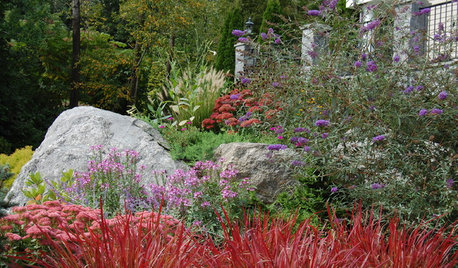

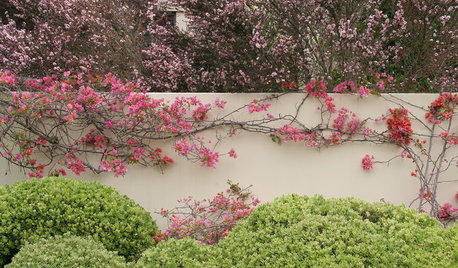



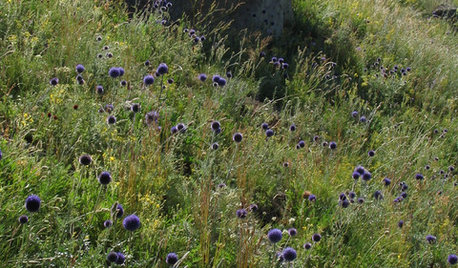

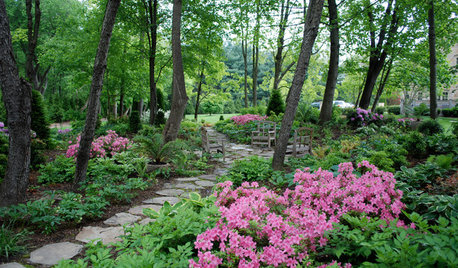




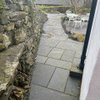


gardengal48 (PNW Z8/9)